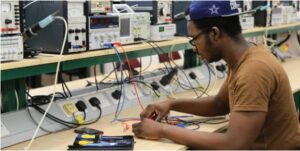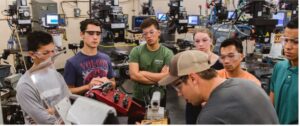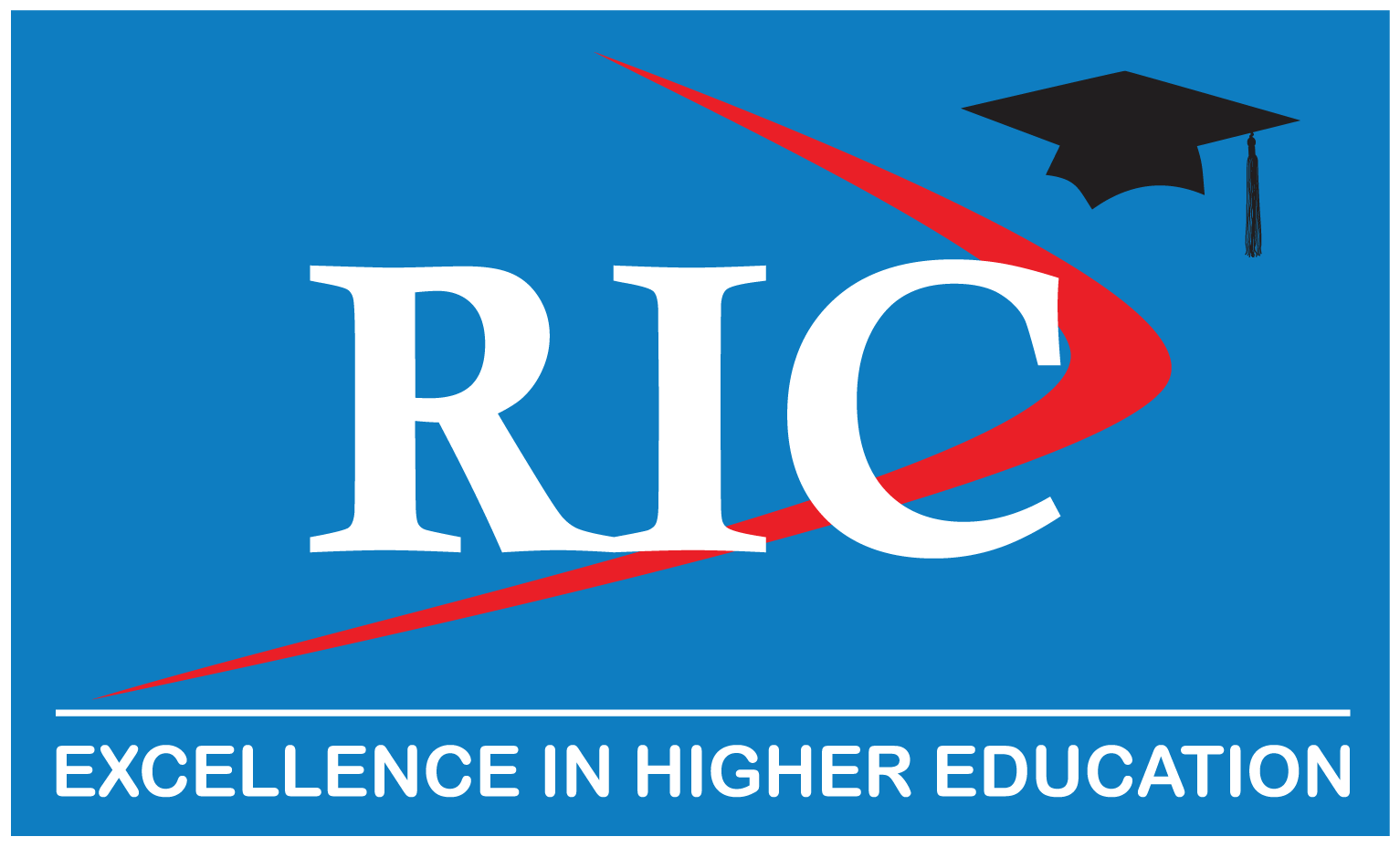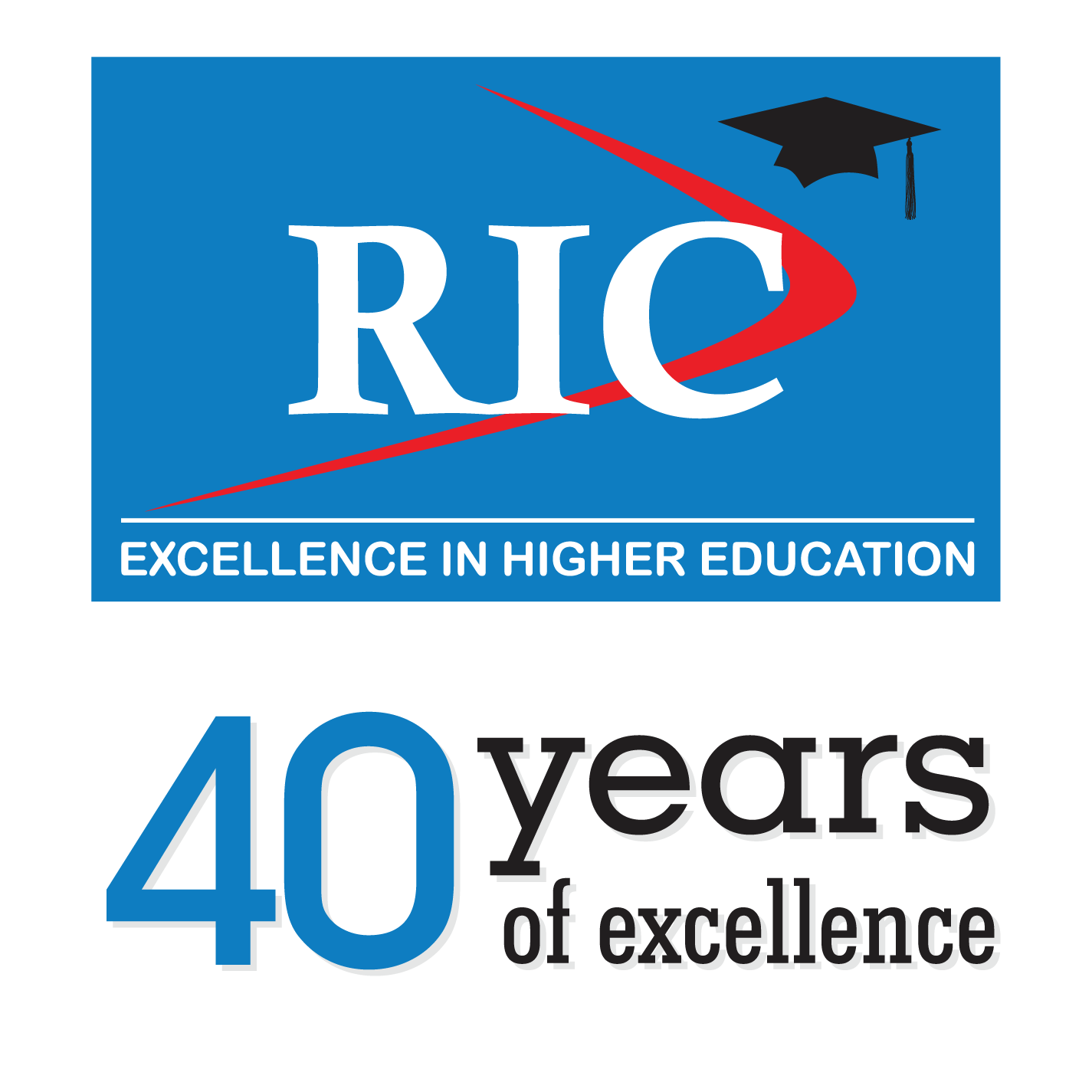From Theory to Practice – How We Learn by Doing, Not Just Reading
A blog by Vasim Ashhar
Second year undergraduate student in the Deakin Pathway Programme at RIC
Bachelor of Engineering (Honours)-Electrical and Renewable Energy Engineering Major
If there’s one thing I’ve come to realize during my time studying Electrical and Renewable Energy Engineering, it’s that real learning doesn’t just happen in lectures or textbooks. It happens when you actually do something with that knowledge – whether that’s wiring a model city, building a laser alarm, or trying to fix something that absolutely refuses to work the way it should.
At RIC, this approach is built into everything we do. From the very first trimester, it’s been about applying theory in ways that challenge us, teach us, and sometimes even frustrate us, but always help us grow.
My First Project

One of the most memorable projects I worked on was a Laser Security System, which we built as a part of the Electrical Systems Engineering module. This was during my very first semester, and I remember feeling both excited and slightly overwhelmed. Along with a few of my classmates, we created a mini version of a real‑world laser alarm system, the kind used to protect valuables from intruders. The idea was simple: when someone crosses the laser beam, it detects the movement and sets off an alarm.
On paper, the concept looked easy. In practice – not so much. Aligning the laser beam, getting the sensors to respond properly, and making sure the alarm triggered at just the right time took trial, error, and a whole lot of patience. But the moment it worked, it felt like magic. That was the first time I realized how different theory feels when you actually see it come to life.
Bringing a City to Life – on a Table
Another project that really stood out was during the Power Engineering Design module in our second year. Our lecturer asked us to build a DIY model city that would show how electricity is generated and distributed, from power stations all the way to homes, factories, and even an off‑grid house with its own solar panel.
We had to calculate wire thicknesses, plan voltage drops and apply concepts we had only previously studied in class. It was one thing to learn about transformers and circuits in theory, but figuring out how to actually make them work together in a working mini-city was something else entirely.
This project taught me how much attention to detail goes into even the simplest electrical setups. It also reminded me that teamwork, creativity, and even a bit of imagination are just as important as equations.
Internship Experience
After my first year at university, I got the opportunity to do an internship at Synex Group of Companies, where I joined the Engineering and Operations Department. It was my first time working in a professional environment, and I was honestly a bit nervous. But as soon as they gave me the task of preparing electrical layout and single-line diagrams, I felt more confident.
Why? Because I had already been introduced to AutoCAD through our Sustainable Design module. The classroom practice using the software meant I wasn’t starting from scratch. It felt amazing to apply what I’d learned at university directly to a real job.
That moment made me truly appreciate how practical skills like learning software, reading drawings, and even formatting reports can open doors and make you useful in a workplace setting.
A Field Visit Full of Memories
Out of all our university field visits, the two-day tour of the hydro power plants at Victoria, Rantabe, and Randenigala stands out the most. Organized by RIC, this visit was not only educational, but it was also one of the most enjoyable experiences of university life so far.
We stayed overnight at a CEB circuit bungalow, travelled together by bus, and were even given worksheets to fill during the visits. We didn’t have to pay anything for transport or accommodation – it was all arranged by the university. It wasn’t just about observing the machinery; it was about feeling the scale of these massive energy systems and understanding how everything works behind the scenes.
And in between all the learning, we played games, had a good laugh, and even took a quick dip in the water. It was a perfect mix of education and fun – and honestly, some of the best memories I’ve made with my peers.
The Mentors Who Helped Me Get Here

I don’t think I’d be where I am today without the guidance and support of my mentors. I especially want to mention our academic coordinators, who gave me a much-needed push when I wasn’t feeling motivated enough to continue with my studies, which really helped turn things around and excel in my academics.
Professors who teach most of our Mathematics modules also played a key role in making difficult topics manageable. And we also had some lecturers – besides being excellent lecturers, they were also individuals we could talk to like friends. They taught us lessons that went beyond the syllabus, and they have stayed with me.
Even our seniors have always been willing to help. Whether it’s sharing past papers, giving feedback on reports, or just being available to answer questions, it has made an enormous difference. This sense of community and mentorship is something I really value about studying at RIC.
The Hardest Assignment That Taught Me the Most
One assignment I’ll never forget was for Sustainable Design. We had to design a completely new or improved product using Fusion 360 and then go on to detail every part of it: from sketches and materials to its usefulness for people and the environment.
It was intense. Fusion 360 was new to me, and I spent hours figuring out how to make my design work. But when it finally came together, I felt proud – not just because I completed the assignment, but because I had genuinely learned a skill I could use again in the future.
Looking Back: The Skills That Stick
There are so many practical skills I’ve picked up along the way – from basic electrical installations, to writing proper technical reports, to just knowing how to approach a project from start to finish. These are skills that helped me during my internship, in group projects, and even when helping my friends when they got stuck.
If I hadn’t come to RIC, I honestly don’t think I would have gained this much hands-on experience. The balance between theory and practice here has shaped how I learn and how I work.
Final Thoughts
If you’d asked me when I first joined university what “real learning” meant, I probably would’ve pointed to textbooks and lectures. But now, after building systems, working on real sites, and learning from mentors who genuinely care, I’d say it’s so much more than that.
It’s about being able to turn ideas into working solutions. It’s about making mistakes and learning from them. It’s about discovering that the knowledge you gain in class only becomes real when you apply it.
And most of all, it’s about doing things that once felt impossible, and then realizing you can.

